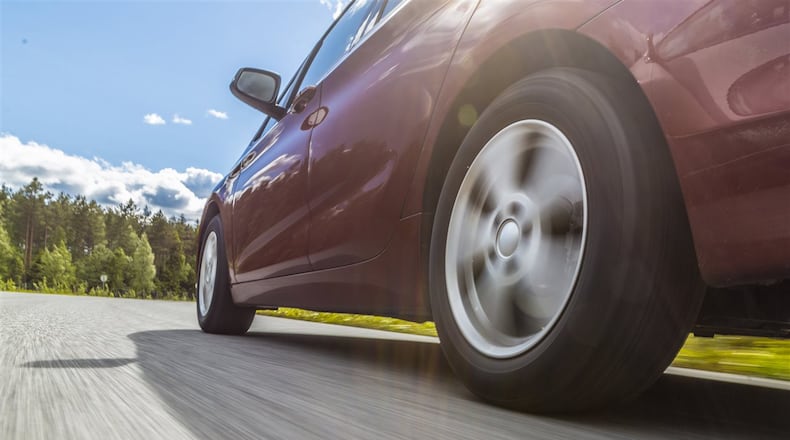My question concerns tire pressure. The Dodge and Ford both call for 36 and 32 pounds respectively (nice, solid, strong even numbers). But Toyota (which also makes the Scion) calls for an annoying 29 pounds per square inch. This drives me nuts!
Why couldn’t the engineers at Toyota simply round up their pressures to a nice, even, easy to remember 30 pounds?
Is it really that critical? I stubbornly keep these two cars at 30 pounds out of spite but wonder if I’m doing any long-term damage. — Michael
RAY: I’m sure you’re really putting the hurt on Toyota and Scion, Michael. Any day now, they’ll crumble and change their recommendation to 30 psi, just to get Michael to stop his spite-filling!
Actually, putting 30 pounds of air in those tires is totally fine. Manufacturers recommend tire pressures based on a matrix of qualities they want to achieve. They try to balance safety, comfort, handling, fuel economy and tire longevity. And when they put all those attributes in the blender, they come up with an ideal recommended tire pressure.
But over-inflating the tires — especially by a small amount — is not a big deal. Under-inflating them is what makes tires dangerous. An under-inflated tire will run hot and can fail at high speed. So don’t round down.
But rounding up is not a problem. Technically, you’ll get a little less comfort, a little better gas mileage and perhaps better handling and tire life.
But in reality, you won’t notice any of that. It’s simply too small a difference for we humans to detect. If you filled the tires to 35 or 36 psi, you might start to notice a harder ride or small welts on your head from hitting it against the underside of the roof.
But 30 psi is not only safe, it’s also nice and round and strong and even. So keep doing it, Michael. Let those guys at Toyota know who’s boss.
Surprise! AC problems are more prevalent in hot weather
Dear Car Talk:
We live in New Mexico and have a 1995 Jeep Grand Cherokee Orvis Edition. The Jeep has 135,000 miles and is in very good condition.
Last summer, my wife and I went to run errands around town. I went inside a store, and my wife stayed in the Jeep with the air conditioner running. It took me about 45 minutes to come back.
When I walked outside, I found my wife standing outside of the Jeep waiting for me. There was steam coming from the engine when I opened the hood, the water in the coolant reservoir was boiling, and it took about three hours to cool off.
It got so hot that the coolant cap of the reservoir came off. I took the Jeep to a mechanic and he installed a new thermostat, but it overheated again. Any idea what is causing this? — Ernest
RAY: Probably summer in New Mexico, Ernest.
Actually, since you’ve already replaced the thermostat, the next thing I would check would be your cooling fans. You have two fans in this Jeep. Which is more fans than I have for this newspaper column, Ernest.
One of your fans is an electric fan that comes on whenever you use the AC. Running the AC makes the engine work harder and causes it to heat up more. That’s compounded by hot weather, which, I’ve found, is when most people use their air conditioners. Pretty observant, huh?
Anyway, whenever the AC is on, this electric fan is supposed to go on with it, to provide extra cooling and help keep the engine from overheating.
You can check that yourself, Ernest. Have your wife sit in the Jeep while it’s running, and with the hood up, have her turn on the AC. You should see — and hear — one of the cooling fans in front of the radiator start up. If not, that could be the problem.
The other fan also could be faulty. That’s your regular cooling fan, and it’s controlled by a thermostatic clutch. That’s a fancy way of saying that it goes faster as the engine gets hotter.
It’s possible that one, or both, of your fans is no longer working. Or working well enough. That won’t be a problem when you’re moving fast and blowing a lot of air through the grill. Or in the winter, when the ambient air is cool and you’re not using the AC. But it’ll be a big problem in hot weather when you’re using the AC and sitting still in a parking space.
Start there, Ernest. And if it’s not a fan problem, write back, and we’ll run up your bill with some more expensive suggestions. Good luck.
Got a question about cars? Write to Ray in care of King Features, 628 Virginia Drive, Orlando, FL 32803, or email by visiting the Car Talk website at www.cartalk.com.
About the Author

